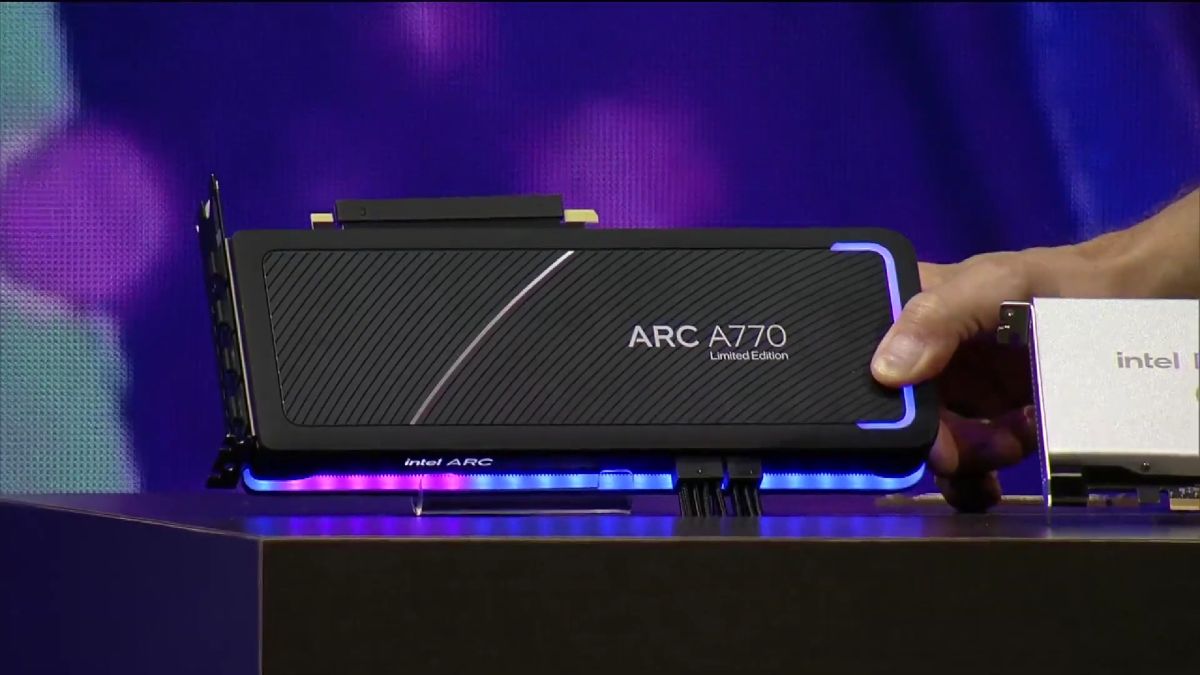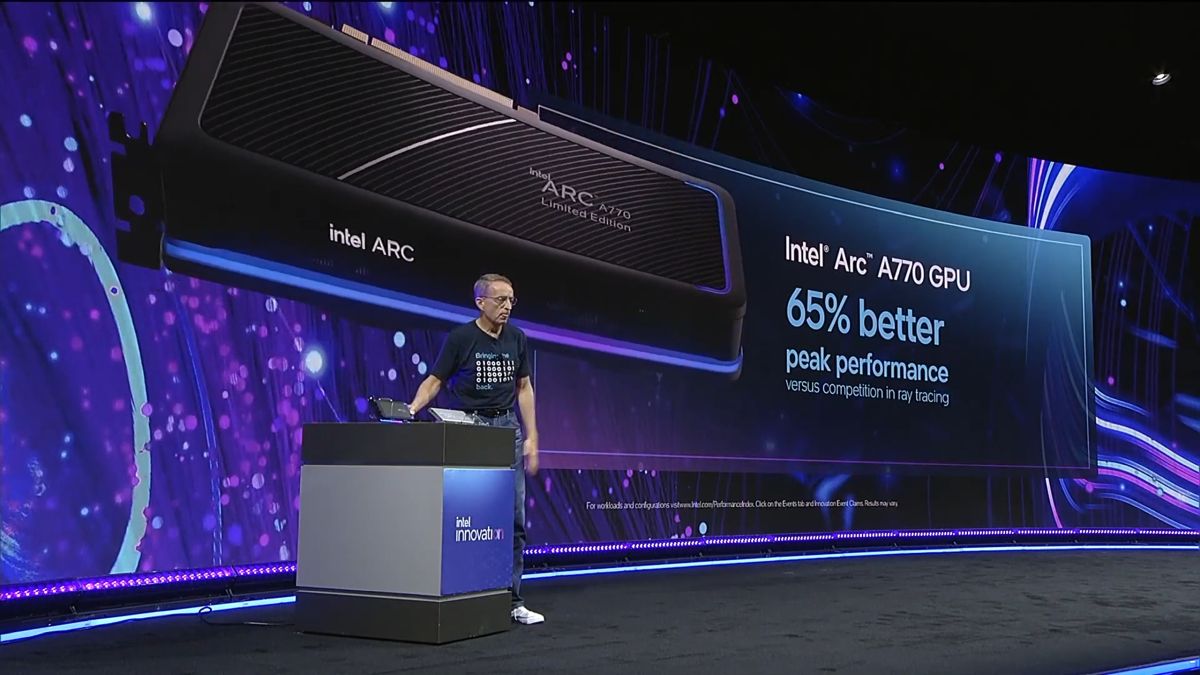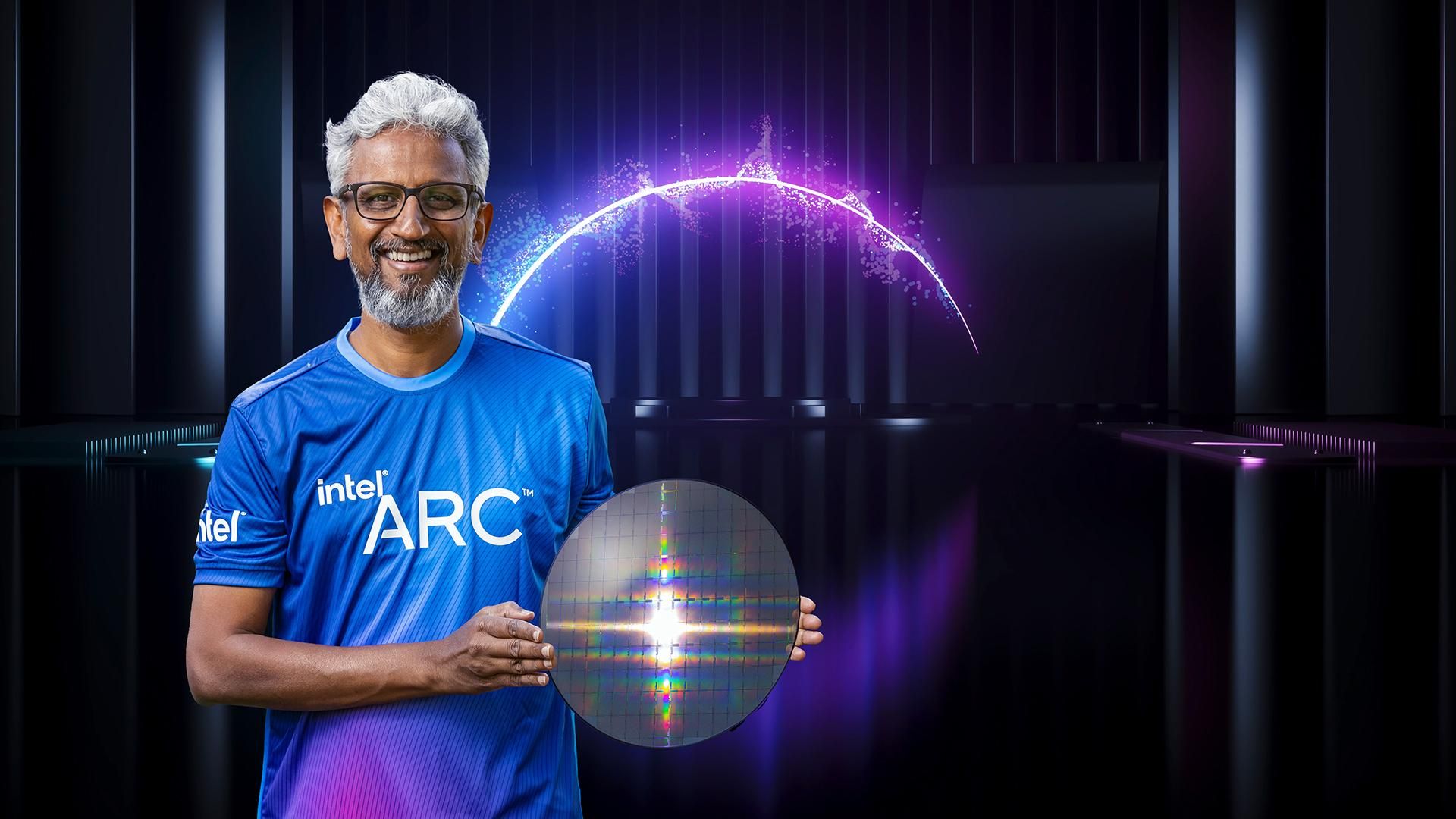Earlier at an Intel ConnectiON even in Mumbai, India, Raja Koduri, the GPU and Gaming head at Intel’s ARC division, spoke to some Indian tech media about the state of its current Alchemist lineup of ARC GPUs. With all but the A580 having launched since the series’ debut back in June, he said that the mid-range card will be the last chance for it to deliver a card with his goal of performance-per-watt being its driving force.
During an interview with the Indian tech site Gadget360, Koduri emphasized that his priority with ARC Alchemist at this point was keeping his core audience happy with a GPU capable of delivering performance but without breaking too far past the 200-225W power threshold. Not only that, but he hopes to be able to do that with future high-end Intel graphics cards as well.

Koduri’s desire for an Intel ARC card that squeezes out near enthusiast-level performance with lower-than-average power consumption isn’t unfounded. As it stands today, high-end graphics cards such as the current NVIDIA GeForce RTX 40 Series or AMD’s recently launched Radeon RX 7900 Series, require an incredible amount of power in order to run efficiently.
The power consumption notwithstanding, Koduri also believes that customers simply want a GPU that is affordable, meaning that they don’t have to go out to buy a brand new PSU, nor would they have to get a card fitted with three fans designed to aggressively bring down the heat that it generates. To its credit, those are criteria that Intel’s ARC cards seem to tick off.

At current, Intel’s two “flagship” ARC GPUs, the A750 and A770, are priced between US$289 (~RM1249) and US$349 (~RM1545). Despite that, multiple reviews of the GPU have placed their performance between NVIDIA’s RTX 3060 and 3060 Ti, both of which are clearly pricier.
However, as much as Koduri wants to squeeze out that performance-per-watt Intel’s ARC GPUs, it is not a stretch to say that the chipmaker may wish to focus on getting its cards in a more stable working order first. Yes, the brand did recently release new drivers that make DirectX 9 games more playable, but that still isn’t addressing the other issues that are currently plaguing the cards.
In addition to the comment, Koduri did also confirm that Intel’s next ARC architecture roadmap is on track, with the next one, codenamed Battlemage, set to make its debut in 2023.
(Source: Tom’s Hardware, Gadgets360, Videocardz)
Follow us on Instagram, Facebook, Twitter or Telegram for more updates and breaking news.



